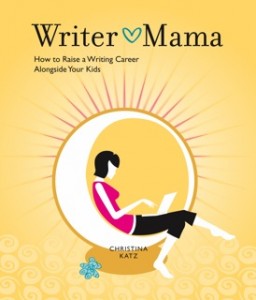This month for
Barrie Summy's Book Review Club I'm discussing
A SUDDEN COUNTRY: A Novel by
Karen Fisher.
First let me just say that A SUDDEN COUNTRY is the author's first novel and was a
PEN/Faulkner Award finalist. Seriously.
A couple of weeks ago
I mentioned that I was reading this book and it was making me crabby. Now I've finished. In fact, I finished the novel quite quickly, as I raced to the end to see how the two main story lines would resolve. (More on those in a moment.)
First a bit on why the book annoyed me so much as I read it. I called it "
Madame Bovary on the Oregon Trail" and it's helpful to note that I didn't have a blast reading
Flaubert's masterpiece, either. I spent the first half of
A Sudden Country talking aloud to the female main character, Lucy. "Don't do it, don't do it, don't do it. You idiot. You'll ruin everything. Seriously, don't do it. Fine, do it. Die if you want; lose your children, whatever. See if I care."
The characters in the novel are nuanced and flawed. I mean, really flawed. And that's good and all, but it's hard to like any of them. Hard life, hard people, occasionally making stupid choices possibly to just because they can. So rarely do they have significant choices to make. Anyway.
Sentence fragments. I was annoyed by them throughout. But my least favorite thing about the writing was my friend Jeanne's favorite part, so it's obviously a matter of taste. Jeanne loved the way the story unfolded slowly, with a sense of mystery. It drove me crazy. I thought the vague, dreamlike, and occasionally misleading language drew attention to itself and took me out of the story. I spent the first few chapters doing math, trying to figure out how Lucy and Israel had all these kids when they'd only been married 4 years, then guessing which kids came from which previous marriages.
Reviewers on Amazon were split between loving the writing style (sentence fragments, partial explanations, imagery-rich details short on clarity) and hating having to read certain sections more than once to figure out what was going on. I found myself somewhere in the middle. Sometimes the style worked for me, sometimes it annoyed me. The author's comment on this issue: "this novel took over ten years, and most of it was written very late at night, by a tired person. So if you find it dreamlike and hypnotic, that’s probably why. I advise reading it under the same circumstances."
I get that! Enough with the criticism already.
One of the greatest strengths of the novel is the amount of historical detail the author includes "effortlessly." I'm not usually a huge fan of reading history and require massive doses of personal narrative to make the lessons go down. (To this day, almost everything I know about ancient Egypt came from a children's novel my mom brought to distract me when I was home sick.) But at times in
A Sudden Country I found the historical anecdotes (daily life on the Oregon Trail) more compelling than story. The author did a really really good job with her research and with writing it into the story in such a way that it was enjoyable rather than pedantic or distracting.
And then there's the story arc itself. I love the ending, though I know many people hated it. I think Lucy's story arc ended just perfectly. Everything was not wrapped up in a neat little bow, but her life never really was particularly tidy (unlike her home or her campsite). The other main point of view character and story arc . . . dropped. Something was building, building, building, I was excited to see how it came out, and then - poof! Done, over, kaput without ever reaching a conclusion. Without ever reaching a confrontation, a destination, anything. It just failed. This frustrated me. Doesn't it break all the rules to cut off the story like that without any sort of resolution? But the more distance I have from the book, the happier I am with the author's choice to handle the story the way she did.
I read a book club version of the novel, and it included
an interview with the author as well as a reader's guide bound into the paperback. You know how sometimes there's one tiny thing someone says or does that jumps out at you and bothers you so much it colors everything else you know about them and their work? (Tom Cruise's religion, Orson Scott Card's politics, David Hasselhoff's habit of wearing his shirts unbuttoned) There were two of these such moments in the author interview, and they nearly spoiled the whole reading experience for me. Now that I've done a bit more research, I suspect that either the author's tone didn't come across perfectly in the interview, or it was edited unsympathetically. (Note
this interview is much more humble and likable, IMO.)
"The road to publication was as rough, believe me, as the journey I was writing about." I would have laughed at that line at a writer's workshop, but not so much immediately after finishing an engrossing and emotional read. Really?! Your search for an agent endangered the lives of your children every day? You had to leave behind every thing you held most dear? Sheesh. I know it's hard to get published, but that's a little Rumpelstiltskin.
This review is far too critical. I'm so glad I read this book. I think you should read it too. It's very good. And educational. Wait! Stop! I mean that in a good way.
Click icon for more
book review blogs
@Barrie Summy


















